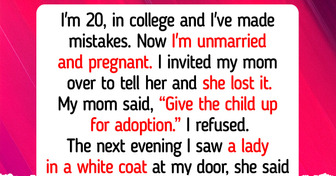* are :)
10 Times When You Don’t Need to Apologize, Even If You Really Want To
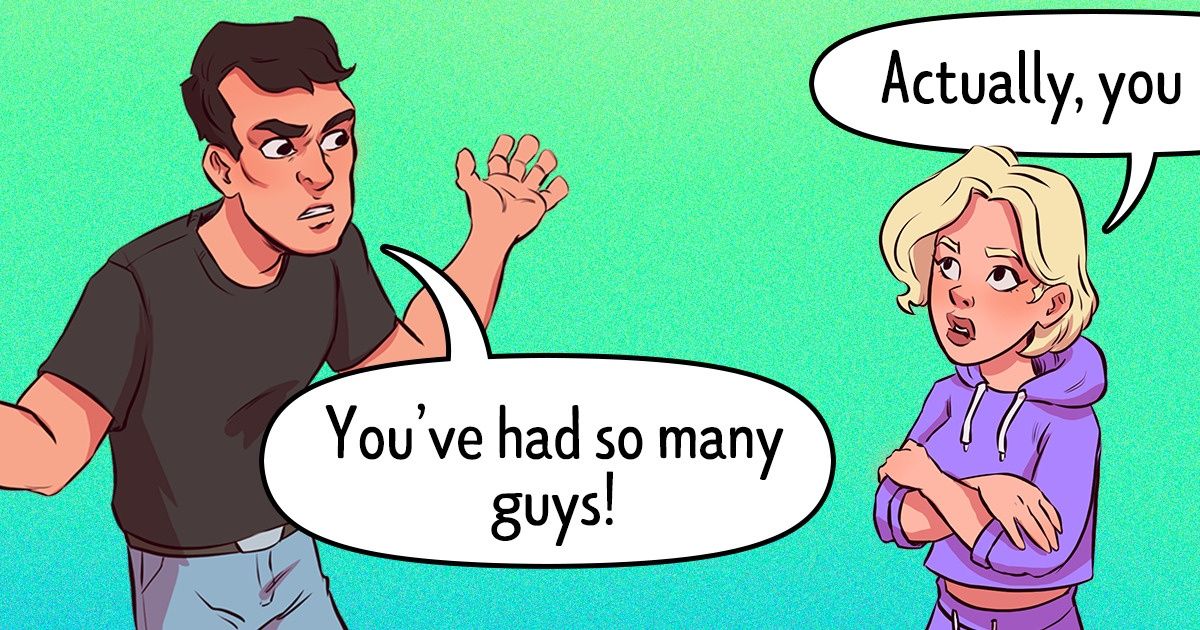
Ill-mannered people think that the word “sorry” is only used by nerds and good-mannered people often apologize when they don’t have to. Did they bring you the wrong order? Sorry, I didn’t ask for this. Why am I not laughing? Sorry, I’m in a bad mood. All these sorrys are supposed to make the situation better, but it turns out that they could ruin your self-esteem.
We at Bright Side figured out which things you should never apologize for.
1. Your marital status
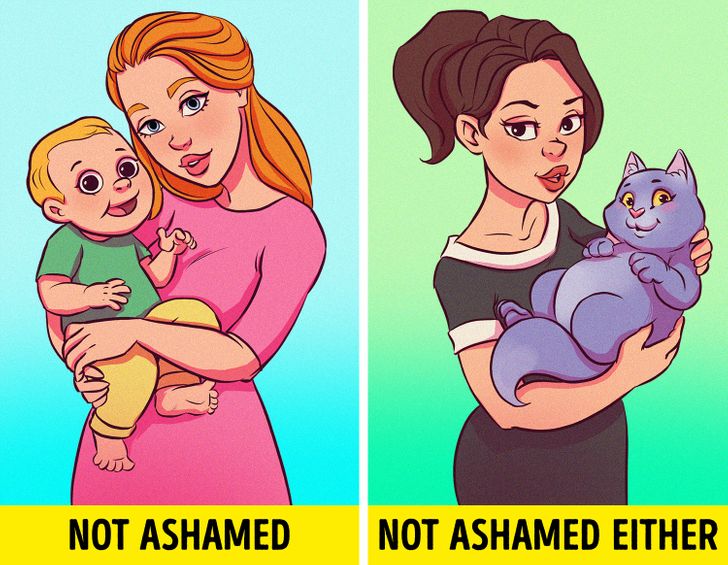
When people are asked about their personal lives, they often start explaining things in an apologetic way, sometimes even to complete strangers. It is all because of the guilt that we feel when we realize we don’t conform to social norms.
Your marital status, your attitude toward having children — whether you want them or whether you don’t is totally your business and nobody else’s. Instead of apologizing to people, pay attention to how you feel when doing it. Do you feel bad? Try to apologize less in order to see how this habit affects your self-esteem.
- “Are you married?”
“No.”
“Why not? How did this happen?” — these are the questions that make me explain my life choices and my attitude.
I think that if I just say, “My ‘no’ is enough,” smart people will understand what I mean and this is the line I draw in our conversation. © citylioness / livejournal
- As much as we say we shouldn’t feel guilty for not wanting to have children, the reality is that the cultural norms and standards of society say that we should want to have children. So when we internally feel that we don’t want to, society tells us that we are “wrong” to feel that way. This turns into guilt, shame, or self-hatred, whatever you want to call it. As a married woman who didn’t want to have children, I had to confront a tremendous amount of guilt for going against the norm. Let’s not pretend it’s not a thing. © Lindsay O’Brien / quora
2. Chasing your dream
A person who is chasing their dream might be making a little money at the beginning, which is not very smart, as some people think. When someone tells this person about it, they start feeling worried and ashamed. And in order to get out of this conversation somehow, they are ready to apologize for their actions and just say “Sorry” instead of fighting for their opinions.
Apologizing when you shouldn’t is like a type of flattery: You think that you are just being careful about other people’s feelings and try to change the subject, but when you do that they think you lack confidence. The person might think that you don’t believe in your ideas enough to fight for them, according to psychologists.
- Never apologize for being yourself, for having a dream and an opinion, or for thinking critically or questioning conventional wisdom. Ludovico Buonarroti was a wealthy upper-class man who was part of the Italian government and who lived in the 1400s. His son was different though, taking an interest in tools & clay — which were considered lower-class skills. Saying, “No child of mine is going to use his hands for a living,” Ludovico scorned his son. The boy grew up, but he refused to give up on his dream. Soon, a block of marble magically transformed into the Statue of David. That man was Michelangelo. © JBrandon Redlinger / quora
3. Other people’s high expectations
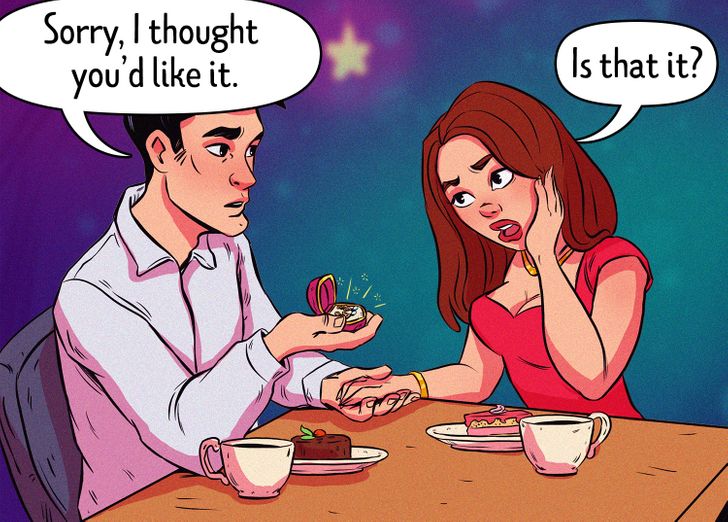
In this case, apologizing may be an attempt to avoid a possible conflict that started because someone expected other words or actions from you. If you apologize, you might avoid conflict, but you will be emotionally depressed. Not apologizing is also an option and it is not always bad.
In fact, refusing to apologize may even improve your self-esteem. For example, when someone tells you, “Oh, I hoped you were going to do this,” you shouldn’t say you’re “sorry” and you don’t have to assume any guilt for failing to live up to someone’s standards or expectations. This is how you avoid emotional trauma.
- Sometimes, I feel a bit uncomfortable when talking to people. I feel like I didn’t do or say something they wanted me to. For example, if I had plans with someone and let’s say they disappear, they stop answering calls or texts, and then BOOM — we bump into each other. I will apologize profusely. © Nutadaoi / Pikabu
- You know how they say to children, “You don’t want to make your mommy sad, right?” And this is where the worst part begins. We start studying for our parents, eating for our parents, cleaning our rooms for other people. Nobody teaches us to do it for ourselves. They don’t tell us how to motivate ourselves the right way. They don’t teach us to think. The whole time, we feel like we owe something to someone. And we rarely owe something to ourselves. People stop listening to themselves while trying to make others happy. They forget what it means to love and do something for themselves. We need to have more self-respect. © Ninauvarova / Pikabu
4. Not knowing something
Very often people apologize for their lack of knowledge to avoid awkwardness. But not knowing something is perfectly normal and so is acknowledging the fact that you don’t know something. The people who don’t know something, don’t look ridiculous, it’s the people who pretend to know everything that look like this. Get a diary and write down every occasion when you say you’re “Sorry.” You’ll be very surprised at how often you use this word without even noticing it.
-
Speaking a second language poorly. I’ve seen that a lot, I’ve even been in that same position myself and felt the need to apologize for not speaking a second language correctly. Learning a second language is not easy, and confidence comes much more easily when the people around you are less judgmental and more supportive. I’m very appreciative of people who learn and try to speak other people’s languages, however poor their proficiency might be at the beginning. And I never accept their apologies when they make mistakes because there’s nothing to apologize for. You don’t apologize for trying to get better. © Gabriel Tambwe / quora
-
I have a habit of apologizing for whatever I do. Like, when I forgot to give 2 cents to a cashier, and when I do something more serious. The reaction is different. Some people say, “No big deal.” and some people seriously take the time to decide if they should forgive me or not. © Nutadaoi / Pikabu
5. Telling the truth
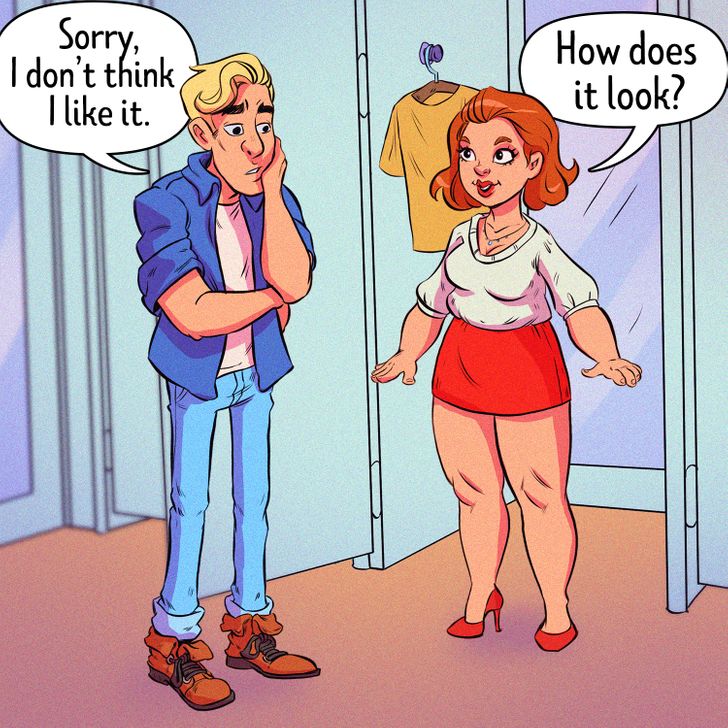
We often apologize, even when being straightforward is extremely important. We want to tell the whole truth as it is, but we feel guilty for hurting people with the truth, so we apologize in advance. We apologize to avoid the social tension before it even appears.
But not everyone has the guts to tell the truth. And if you still feel uncomfortable and you feel the need to say, “Sorry, I had to say it,” you need to explain that you are apologizing out of sympathy and not because you did something wrong. This is really important for your self-esteem.
- In real life, the truth hurts so much that an apology is really the best way of gaining permission for sharing the truth, even though it will be painful. So, I’ll say, “I’m afraid to say something here, but it feels like I have to say it. I’d rather not say it if it might hurt you, but it is the truth as I know it.” Then I wait for verbal approval or a gesture to proceed. When telling the truth, it’s best to do it without any additional hint of apology or permission seeking. Say it quickly and say it all. Wait and watch for the reaction. Be genuine and as kind as the circumstance allows. © Mac Davidson / quora
- While we should not be apologetic about telling the truth, we must always remember that there is more than one way to deliver that truth. We can spit words of truth like venom, or we can be gentle with the truth. If you tell someone the truth in a harsh way, you shouldn’t be sorry for telling the truth, but you should be sorry that you could have handled delivering that truth in a kinder manner. © Benjamin Haney / quora
6. Your emotions
Most of the time, women apologize for their feelings. According to studies, women are more sensitive to insulting behavior, which is why they often see the necessity to apologize in everyday situations.
Madeleine Burry, a New York writer did an experiment where she stopped apologizing for one week. It was extremely hard for her and made her think about what she really wanted to say to people. “Often, when I say ‘sorry’ I don’t feel guilt, I just do it by default. Apologies have become filler words.” She came to an interesting conclusion: everything changes if you just tell people about how you really feel. There is a huge chance they will understand and help you.
- I just came out of a 2-year relationship and realized that I was apologizing for the differences between my ex and I. Things like apologizing for being emotional or getting upset or apologizing for not being spontaneous. I even started apologizing when he said he didn’t know how he felt like it was my fault. I realize now that I shouldn’t have apologized and should have understood that getting upset and crying is okay and just because he found it hard to handle me being upset, that wasn’t my fault. We were just very different and not compatible as a couple. © Elizabeth Martin / quora
-
Once, a girl told me about an incident that she had kept locked up deep inside. Mid-sentence, overwhelmed with feelings, she could not hold it in any longer and she broke into tears. She tried to suppress her feelings and get a hold of herself, but all attempts were futile and the sobbing continued. Then she said something that surprised and saddened me, “I’m sorry.” I seriously don’t understand the concept of apologizing for tears. Do we apologize for laughing? Then, why apologize for crying? Never apologize for your tears, you have every right to express your feelings and to be vulnerable. © Keerthana Devanand / quora
7. Asking for help
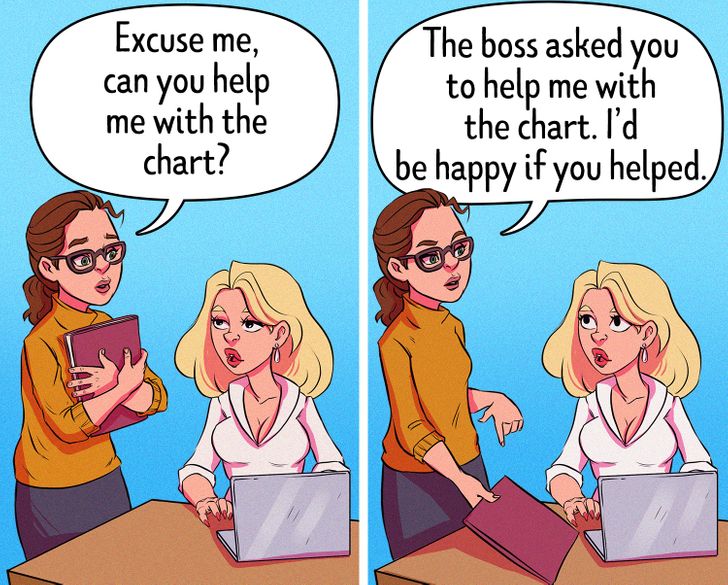
For many people, apologizing is directly connected to politeness, which is why “sorry” has become the starting point for any sentence. It seems that if we ask people for something, we have to start with an apology because we are taking up their time.
However, there is no need to apologize if you need information. Next time you want to start a request with “sorry,” try and replace it with “Could you please?”
- A tip for people who apologize compulsively: replace “I’m sorry” with “Thank you.” I used to apologize constantly in a way that was almost a verbal tic and it drove my boyfriend crazy, especially when he was trying to help me with something like anxiety or depression or whatever. Replacing “I’m sorry” with “Thank you” really turned the situation around and instead of “I’m sorry I’m like this and that you have to help me all the time,” it became “Thank you for helping me, I really appreciate all the things you do for me.” © lovelylayout / reddit
- I know a girl who always says “sorry” no matter what. We work together and she says it all the time! We told her openly that she had to stop apologizing for every word she says. For now, it has helped. © elenaum75 / Pikabu
8. Someone else’s mistakes
This is what polite people do: when someone is making you uncomfortable, the tension becomes stronger and you need to do something about it. And here you are apologizing to a delivery person because he wasn’t able to find your house and he brought you a cold pizza. The thing is, apologies are sometimes a passive-aggressive defense mechanism we use to tell other people they need to apologize.
Psychologists recommend asking yourself, “Did I really do anything wrong?” You need to determine the triggers that make you want to apologize. When something like this happens next time, you should replace your apologies with exact arguments to explain your point of view.
- When I was in the Army, there was a nice guy, a sergeant. One day, something went wrong, it wasn’t his fault and it would take a bit of an explanation to make the situation clear. But he, at that time, being the senior person present, simply said, “Sir, it’s my fault, I’ll correct it.” He got praise from that officer for being direct and working toward solutions without an excuse, and it made an impression on him. So he got into that habit, and it wasn’t impressive and decisive, it just looked like he was constantly making mistakes, even though he wasn’t. Well, his career went south quickly. © Tom Martin / quora
- I was 18 and at a beach party in Western Australia. A school friend asked me to drive her cousin home because she had had too much to drink. We drove her to where she was staying at her aunt’s house. When the aunt came to the door, she was justifiably angry and gave me quite an earful. Instead of swearing my innocence, I apologized for what happened and left. © Ken Wilson / quora
- I apologize for sneezing. Like I did it on purpose and then regretted it. When I’m on the phone with somebody and the line breaks up, I apologize. Because I’m responsible for infrastructure in this country, obviously. When somebody is in my way and I need to get past them, I invariably say, “Sorry, can I just get past?” I’m not sorry. Stop standing in doorways! When somebody says something and I don’t hear them, instead of saying, “What did you say?” I say, “I’m sorry, I couldn’t hear you...” © Matt Lever / quora
9. Your past
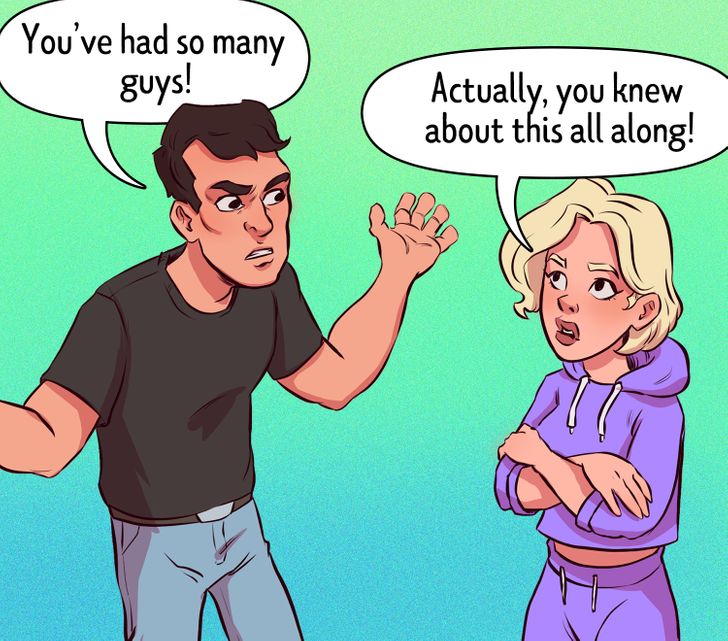
When someone reminds us of our past mistakes, we feel guilty again. We start feeling awkward for the ancient mistakes we made and this only means one thing: we haven’t really gotten over it and we never forgave ourselves.
Almost every person has a moment they would love to erase from their memories if they could. There is no point in apologizing for things we can’t change. The solution is simple and hard at the same time: forgive yourself and the reflex of the apology will stay in the past too.
- You were a different person back then. People make mistakes, but people can also make amends. You may have regretted doing what you did, but you also promised to not ever make that mistake again. Stop apologizing over and over again for the past. © Gayathri Mahesh / quora
- Why talk about the past? I don’t like apologizing for it and I think it is pointless — you can’t change it anyway. Nobody needs these words — this comes from my own experience. Only the things you do matter. © gryll / livejournal
10. Not wanting to communicate
By apologizing to people we don’t want to see, we are being sympathetic, trying to make the situation less painful. But when you apologize, you admit your faults. The power of apologies works only when you use them at the proper times.
- I used to apologize for everything I did. I thought I was being polite and kind, and that I made people like me more. But it didn’t work. I apologized and people only became even more aggressive because they only saw a person that admitted their faults. © inamora / livejournal
-
I had a falling out with a friend a while ago. I made the decision to part ways with her for my own sake. I decided that I deserve to be respected and if she doesn’t feel the same, she doesn’t need to be in my life. It wasn’t an easy decision, but it was better than staying in a relationship that was so toxic. It was for myself, and that made me feel selfish. But I wasn’t selfish, I was prioritizing myself, and there isn’t anything wrong with that. You are the person you are going to have to live with for the rest of your life, so you might as well make good decisions for yourself. You can cut out a friend, disown family, or divorce a spouse, but you can’t run away from yourself. You have one life to live, so live it well. © Auriane Ryf / quora
Do you have a habit of apologizing to other people even when you don’t have to? What do you apologize for?
Comments
Sometimes people just apologize out of habit you know that doesn't make it bad
This is me, I always feel like I have to say sorry.. even when I try not to, I just do it
At the end of the day, we shouldn't pay attention to what other people say
I used to get mad when my parents and friends bothered me because I've been single for so long but I just embrace it and stop worrying about their empty words
Related Reads
12 Moments That Teach Us to Choose Kindness Even When Life Turns Cruel
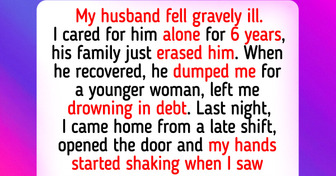
12 Stories That Prove Real Kindness Is About Actions, Not Words
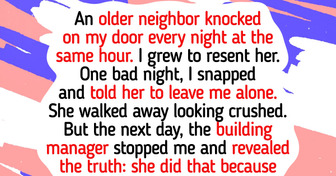
I Refused to Be Treated Like a Maid in My Own Home—So I Changed the Rules
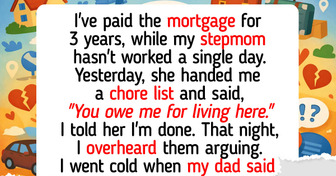
My Dad Refused to Come to My Wedding, but I Still Asked for the Gift
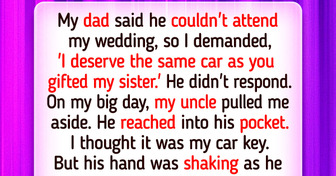
A Stranger Humiliated My Daughter at Disney World—He Picked the Wrong Mom to Mess With

I Refused to Follow My Boss’s Dress Code—HR Had to Step In

I Refuse to Be My Brother’s ATM Anymore—The Revenge He Planned Was Sick
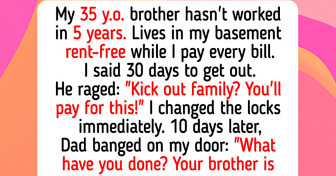
My Family Always Prioritized My Sister—Then Expected Me to Help Them With Medical Bills
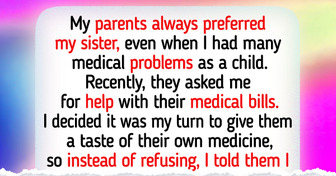
I Refuse to Keep Visiting My Husband’s Family—I’m the Breadwinner, Not Him
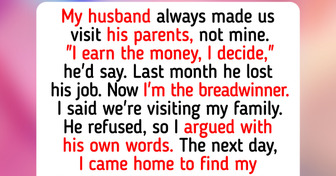
I Refused to Let My Stepson Share My Daughter’s Room
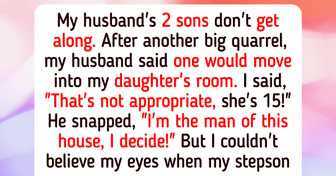
10 Jaw-Dropping Stories Where One Moment Changed Everything
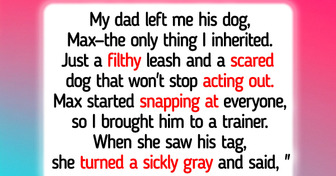
I Refused to Give Up My Baby, So My Mom Exposed a Terrible Secret
